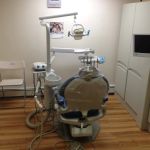Pediatric Oral Health Tips for Kids with Braces: How to Keep Their Smiles Healthy and Bright
- Why Oral Health is Important for Kids with Braces
- How Braces Affect Dental Care
- Brushing and Flossing Tips for Kids with Braces
- Foods to Avoid While Wearing Braces
- The Importance of Regular Dental Checkups
- Dealing with Pain and Discomfort from Braces
- How to Encourage Good Oral Habits in Kids with Braces
- Book Your Child's Orthodontic Appointment
1. Why Oral Health is Important for Kids with Braces
When children get braces, their dental care routine needs to change to accommodate the new orthodontic appliances. Braces are designed to straighten teeth, but they also require extra attention to maintain good oral health. Poor oral hygiene can lead to a variety of problems, such as plaque buildup, tooth decay, gum disease, and even damage to the braces themselves. For kids with braces, it's essential to adopt proper dental care practices to ensure that their treatment goes smoothly and their smile stays healthy throughout the process. By taking extra steps to keep their teeth clean and their gums healthy, children can avoid the common complications that can arise during orthodontic treatment.
2. How Braces Affect Dental Care
Braces introduce a number of changes to a child's daily dental routine. The brackets and wires that make up the braces can trap food particles and plaque, making it more challenging to keep teeth clean. This added difficulty can lead to an increased risk of cavities and gum disease if proper cleaning techniques are not followed. Additionally, the wires and brackets can cause irritation to the mouth's soft tissues, leading to discomfort, especially after adjustments. With these factors in mind, it's important to develop a thorough dental care plan that accommodates the presence of braces, ensuring that both the teeth and gums remain in top condition throughout the treatment period.
3. Brushing and Flossing Tips for Kids with Braces
Brushing and flossing are even more important when a child has braces. Since braces can trap food and plaque, it’s essential to clean the teeth thoroughly after every meal to prevent plaque buildup and tooth decay. Here are some tips for effective brushing and flossing for kids with braces:
3.1. Use the Right Toothbrush and Toothpaste
Parents should ensure that their child uses a soft-bristled toothbrush, as hard bristles can damage the braces or irritate the gums. Additionally, fluoride toothpaste is essential to protect the enamel of the teeth. Electric toothbrushes can also help kids achieve a more thorough clean, especially when reaching the hard-to-reach areas around the braces.
3.2. Brush After Every Meal
Braces create more places for food to get stuck, so brushing after every meal is crucial. It’s important to brush for at least two minutes, paying extra attention to the areas around the brackets and wires. Parents can help their kids learn the right technique by demonstrating and ensuring they brush all surfaces of their teeth.
3.3. Flossing with Braces
Flossing can be tricky with braces, but it’s still essential to prevent plaque buildup between the teeth. Special orthodontic floss or a floss threader can help kids floss around their braces. Flossing once a day is enough to ensure the spaces between teeth are properly cleaned.
4. Foods to Avoid While Wearing Braces
Certain foods can damage braces or get stuck in them, making oral hygiene more difficult. It’s essential for kids to avoid the following types of foods:
4.1. Sticky Foods
Foods like gum, caramel, and taffy can easily get stuck in braces and are difficult to clean out. These sticky foods can also cause damage to the wires and brackets, potentially delaying treatment.
4.2. Hard Foods
Hard foods like nuts, hard candies, and ice can break or damage the braces. Biting into hard foods can cause the brackets to loosen or even break, which may require extra orthodontic visits.
4.3. Sugary Foods and Drinks
Excess sugar can contribute to tooth decay and cavities, especially when the teeth are difficult to clean with braces. Soft drinks, candy, and sugary snacks should be limited to protect the teeth and braces during the orthodontic treatment.
5. The Importance of Regular Dental Checkups
Regular dental checkups are essential for kids with braces. During these visits, the orthodontist will check the progress of the braces and make necessary adjustments. In addition to orthodontic visits, it’s important for kids to continue their routine dental checkups with a general dentist. These appointments allow the dentist to check for any cavities or gum issues that may arise during the orthodontic treatment.
Regular cleanings are especially important to ensure that plaque and tartar don’t build up around the braces. The dentist can also provide professional cleaning to remove any stubborn plaque that may have been missed during brushing. By sticking to regular checkups, parents can ensure that their child’s oral health remains optimal during their time with braces.
6. Dealing with Pain and Discomfort from Braces
Braces often cause discomfort, particularly after an adjustment. While this discomfort is typically temporary, it’s important to know how to manage it. Here are some strategies to help alleviate pain and discomfort:
6.1. Pain Relief Options
Over-the-counter pain relief medications, such as ibuprofen, can help ease the discomfort from braces. Parents should follow the recommended dosages and consult with the orthodontist if the pain is severe.
6.2. Soft Foods
After an adjustment, it’s best to eat soft foods that won’t irritate the braces or cause additional pain. Foods like mashed potatoes, yogurt, and smoothies are gentle on the teeth and easy to eat.
6.3. Wax for Braces
If the brackets are causing irritation to the inside of the mouth, orthodontic wax can be applied over the brackets to create a barrier and prevent further irritation.
7. How to Encourage Good Oral Habits in Kids with Braces
Encouraging good oral hygiene habits is crucial for kids with braces. Here are some tips to help them stay on track:
7.1. Make It Fun
Kids are more likely to follow a routine if it’s enjoyable. Parents can make brushing and flossing a fun activity by using timers, playing music, or even creating a reward system for consistent care.
7.2. Be a Role Model
Children often mimic their parents’ behavior. By maintaining a consistent oral care routine themselves, parents can set a good example and motivate their children to do the same.
7.3. Educate Them About Braces Care
Explaining the importance of taking care of their braces and teeth can help children understand why they need to brush and floss properly. Empowering kids with knowledge about their dental health helps them take ownership of their oral hygiene routine.
8. Book Your Child's Orthodontic Appointment
Ensuring that your child maintains good oral health while wearing braces requires the right care and attention. If you're looking for expert advice or orthodontic treatment, visit Dentistry Toothtruth for professional services that will help guide your child through their orthodontic journey. Click here to book an appointment today!







 Bellingham Dental Arts4.0 (27 review)
Bellingham Dental Arts4.0 (27 review) Oral Surgery Hawaii4.0 (385 review)
Oral Surgery Hawaii4.0 (385 review) Nanuet Family Dentistry: Dr. Srinivasa5.0 (2 review)
Nanuet Family Dentistry: Dr. Srinivasa5.0 (2 review) Virginia Biological Dentistry4.0 (250 review)
Virginia Biological Dentistry4.0 (250 review) Saddle Brook Dentist4.0 (125 review)
Saddle Brook Dentist4.0 (125 review) Orthodontics Exclusively3.0 (39 review)
Orthodontics Exclusively3.0 (39 review) The Importance of Oral Health Education During Pregnancy for a Healthy Pregnancy
The Importance of Oral Health Education During Pregnancy for a Healthy Pregnancy Best Tips for Brushing Your Teeth Properly for Healthy Gums: Essential Techniques for Oral Health
Best Tips for Brushing Your Teeth Properly for Healthy Gums: Essential Techniques for Oral Health Why Skipping Dental Checkups Can Lead to Bigger Oral Health Problems
Why Skipping Dental Checkups Can Lead to Bigger Oral Health Problems Advantages of Porcelain Dental Restorations
Advantages of Porcelain Dental Restorations How Can Diabetes Cause Tooth and Gum Problems? Preventing and Managing Oral Health Issues
How Can Diabetes Cause Tooth and Gum Problems? Preventing and Managing Oral Health Issues Healthy Habits for Promoting Good Oral Health and Hygiene: Tips for a Healthy Smile
Healthy Habits for Promoting Good Oral Health and Hygiene: Tips for a Healthy Smile